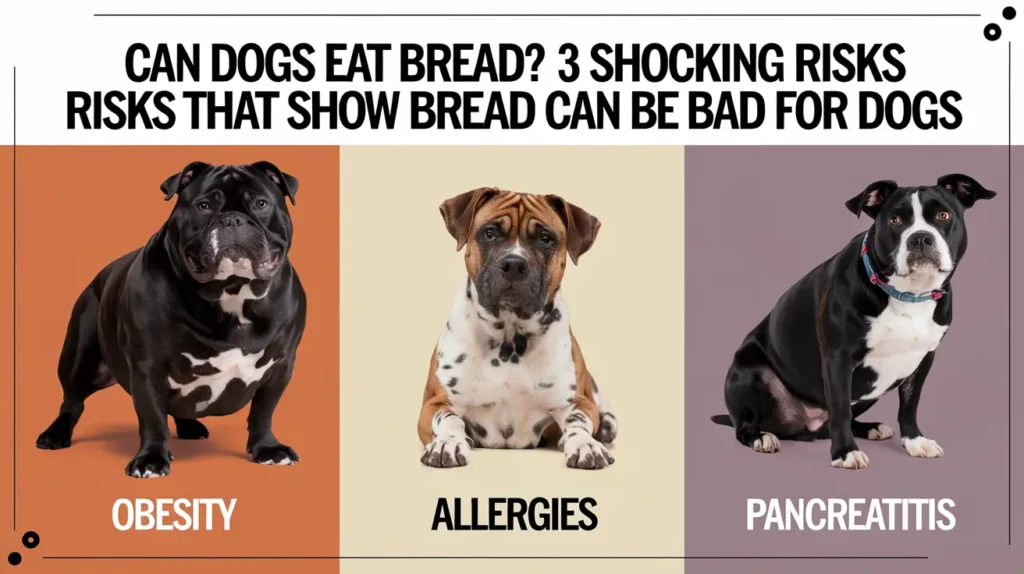Can Dogs Eat Ham? Health Risks of Feeding Ham to Dogs
As pet owners, we always want the best for our dogs, including the occasional treat. However, not all human foods are safe for dogs. A common question among dog owners is, "Can dogs eat ham?" While ham might seem like a tempting treat, there are several factors to consider before sharing this food with your furry friend. In this article, we will explore whether dogs can eat ham, the nutritional benefits and risks, and healthier alternatives for your pet.
Table of Contents
Why Can't Dogs Eat Ham?
Dogs should not eat ham due to its high sodium and fat content, as well as the harmful preservatives and additives it often contains. The excessive sodium can lead to salt poisoning, causing symptoms like vomiting, diarrhea, and even seizures. The high fat content in ham can contribute to obesity and trigger pancreatitis, a serious condition that affects the pancreas and can lead to severe health complications.
Additionally, processed ham contains nitrates and artificial flavors that can upset a dog’s digestive system. If ham is served with bones, there’s also the risk of splintering, which can cause choking or internal injuries. Given these risks, it’s best to avoid feeding ham to dogs and choose safer, more nutritious alternatives.

Can Dogs Eat Ham? Medical Research and Statistics from U.S. Universities and Pet Labs
Numerous studies and veterinary insights suggest that ham is not an ideal food for dogs. While not inherently toxic, it poses significant risks due to its high sodium and fat content, as well as the preservatives often used in its preparation.
- The AKC states that processed meats like ham contain dangerous amounts of salt and fat that can lead to health issues such as pancreatitis, a painful condition that causes inflammation in the pancreas. This is a common concern among veterinarians who treat dogs with digestive issues linked to fatty foods.
- Cornell has published studies highlighting that high-fat diets can cause serious health issues in dogs, such as obesity and pancreatitis. These studies emphasize that feeding ham, with its high fat content, increases the risk of developing these conditions.
- Research at Tufts points out that processed foods like ham often contain nitrates and other preservatives that are harmful to dogs. Long-term consumption of such chemicals can lead to digestive issues and even increase the risk of cancer.
- UC Davis veterinarians have highlighted the dangers of feeding salty foods like ham to dogs, particularly in relation to kidney disease and salt poisoning. Dogs with pre-existing conditions are especially vulnerable to complications from high-sodium foods.

Statistical data collected from pet hospitals and veterinary clinics across the United States reinforces the risks associated with feeding ham to dogs.
- A survey conducted by Banfield Pet Hospital, which operates over 1,000 veterinary clinics in the U.S., showed that dogs who consume processed meats like ham are 30% more likely to experience gastrointestinal distress compared to dogs that do not consume such foods. This includes vomiting, diarrhea, and discomfort.
- According to the APCC, cases of salt poisoning in dogs, often related to consuming processed meats like ham, account for a significant portion of emergency calls. In 2023, the center reported a 15% increase in cases related to high-sodium foods, indicating that more owners are unknowingly feeding harmful foods like ham to their pets.
- Statistics from the APOP show that 56% of dogs in the U.S. are overweight or obese, and high-fat diets, including feeding dogs table scraps like ham, are contributing factors. Dogs that consume high-fat, human foods are 40% more likely to become obese, which can lead to joint problems, heart disease, and a shorter lifespan.
- A report from VECCS highlights that pancreatitis cases have risen in the last decade, with up to 20% of affected dogs having a diet high in fatty human foods like ham. The treatment of pancreatitis can be costly and painful, often requiring hospitalization and intensive care.
Types of Ham and Why They Matter
Not all ham is created equal, and different types pose different levels of risk to dogs. Here’s a look at some common types of ham and how they may impact your dog’s health:
- Processed Ham: Processed hams often contain high levels of salt and preservatives, which can lead to health issues in dogs.
- Smoked Ham: Smoked ham may contain added chemicals and flavorings that could be harmful to dogs, especially if they are sensitive to these additives.
- Uncured Ham: While uncured ham doesn’t contain preservatives, it still has a high fat and salt content, making it a poor choice for dogs.

Spices and Seasonings
Many hams are flavored with ingredients like garlic, onion, and certain spices that are toxic to dogs. Garlic and onion, even in small amounts, can lead to anemia and other health complications in dogs. If your ham is seasoned with any of these ingredients, it’s best to avoid sharing it with your pet altogether.
Is Any Ham Safe for Dogs?
While the general consensus is that ham is not recommended for dogs, some owners might wonder if certain types of ham are safer than others. Let’s explore a few variations:
Some dog owners may believe that giving their pets unseasoned or low-sodium ham is a safer option. While this type of ham might reduce the risk of sodium poisoning, it still contains high levels of fat, which can trigger pancreatitis or obesity over time. Even in small amounts, the risk is still present.
Feeding raw ham to dogs is not advisable either. Raw pork can contain parasites like Trichinella spiralis, which can lead to trichinosis in dogs. This parasitic infection causes symptoms like:
- Muscle pain
- Lethargy
- Fever
Cooked ham eliminates the risk of parasites, but as mentioned earlier, it introduces the dangers of high fat and sodium levels.

Can Dogs Eat Ham Slices?
Ham slices, though tempting to share with your dog, are not ideal for their health. Ham slices are often high in sodium and fat, both of which can lead to serious health issues in dogs. Here’s why:
- Excessive Sodium: Ham slices are usually heavily salted during the curing process, and this high sodium content can lead to salt poisoning in dogs. Too much sodium can cause symptoms such as excessive thirst, vomiting, and even seizures.
- High Fat Content: Ham is naturally high in fat, which may contribute to obesity and pancreatitis in dogs. Both conditions can lead to long-term health problems that require medical attention.
- Preservatives and Additives: Processed ham slices often contain preservatives, nitrates, and artificial flavors that can be harmful to your dog’s digestive system, potentially causing vomiting or diarrhea.
- Potential Allergies: Some dogs might have allergies or sensitivities to pork or other additives in ham, leading to allergic reactions such as skin rashes, itching, or gastrointestinal issues.

While giving your dog the occasional small piece of ham might not cause immediate harm, it’s best to avoid feeding them ham slices regularly due to the potential health risks. There are many healthier and safer alternatives you can offer instead, such as lean meats like chicken or turkey.
Can Dogs Eat Honey Ham?
Honey ham is even less suitable for dogs than regular ham due to its additional sugar content and other harmful ingredients. While it may seem harmless, feeding honey ham to your dog can pose significant health risks. Here’s why:
- High Sodium Content: Like all processed hams, honey ham contains a high level of sodium, which can lead to salt poisoning in dogs. Too much sodium can cause dehydration, vomiting, diarrhea, and in severe cases, seizures or even death.
- Added Sugars: Honey ham is often glazed with honey or sugar-based syrups, making it even more unhealthy. Dogs don't need added sugars in their diet, and consuming sugar can lead to weight gain, diabetes, and dental issues over time.
- High Fat Content: Similar to regular ham, honey ham is high in saturated fats. Excess fat in a dog’s diet can cause pancreatitis, a painful inflammation of the pancreas, and can contribute to obesity and other health issues.
Honey ham is not a safe or healthy treat for dogs. The combination of sodium, sugar, and preservatives makes it a poor choice.

- Preservatives and Additives: Processed meats like honey ham often contain harmful preservatives, nitrates, and artificial flavors, which can upset your dog’s digestive system and potentially lead to long-term health problems.
Can Dogs Eat Ham Bones?
The answer here is a definite no. Cooked ham bones are brittle and prone to splintering, which can cause:
If you want to give your dog a bone, consider purchasing raw bones specifically prepared for dogs.
The Nutritional Content of Ham
Ham is a type of pork that is cured, smoked, or salted to enhance its flavor. It is rich in protein and fat, making it seem like an excellent energy source. Here’s a breakdown of some of the key nutrients in ham:

Is Ham Bad For Dogs
1. High Sodium Content: One of the biggest concerns with feeding ham to dogs is its high sodium content. Most commercial hams are heavily salted, which can cause a variety of health issues in dogs, including:
- Dehydration: Salt draws water out of cells, which can lead to dehydration if your dog eats ham in significant amounts.
- Kidney Damage: Dogs are particularly susceptible to salt toxicity, which can cause kidney stress or damage over time.
- Bloating and Digestive Issues: Excess salt can also lead to bloating, which can be dangerous in breeds prone to gastric torsion.

2. High Fat Content and Pancreatitis
Another concern with ham is its high fat content. Dogs are not able to digest large amounts of fat as efficiently as humans, and diets high in fat can lead to pancreatitis, a condition where the pancreas becomes inflamed. Symptoms of pancreatitis in dogs include:
- Loss of appetite
- Vomiting and diarrhea
- Abdominal pain or swelling
- Lethargy and dehydration
Pancreatitis is a serious condition and requires veterinary attention. Even small amounts of ham fed regularly can increase the risk of this condition, particularly in smaller dogs or breeds more prone to digestive issues.


3. Risk of Trichinosis
Although trichinosis is rare, uncooked or undercooked pork products like ham can carry the parasite Trichinella spiralis. This parasite can cause trichinosis, a disease that affects both humans and dogs, leading to symptoms like muscle pain, vomiting, and digestive upset. Always ensure that ham is fully cooked before considering feeding it to your dog, but be cautious as even cooked ham may carry other risks.
4. Possible Allergic Reactions
Some dogs may be allergic to pork, leading to symptoms like itching, skin rashes, digestive upset, and ear infections. If you have never fed pork or ham to your dog before, be cautious and monitor for any signs of an allergic reaction.

How to Safely Feed Ham to Dogs?
If you still wish to give ham as a treat on rare occasions, follow these guidelines to minimize potential risks:
- Portion Control: Keep the serving size small. A few small pieces of ham as an occasional treat are unlikely to cause harm if your dog is otherwise healthy.
- Choose Low-Sodium Ham: Opt for low-sodium varieties if available, and avoid seasoned or smoked ham.
- Observe Your Dog for Reactions: After feeding ham, monitor your dog for any adverse reactions, such as digestive issues or unusual behavior.
What to Do If Your Dog Ate Too Much Ham?
If your dog accidentally consumes a large amount of ham, monitor for symptoms of salt toxicity or pancreatitis. Some signs to watch for include:
- Vomiting and Diarrhea
- Lethargy
- Abdominal Pain
- Excessive Thirst or Urination
If any of these symptoms appear, it’s important to contact your veterinarian immediately. Quick intervention can prevent more severe health complications.
Healthier Alternatives to Ham
While ham may not be the best choice, there are plenty of healthy, dog-safe alternatives that can provide similar benefits without the risks. Here are a few options:
1. Lean Meats: Lean meats like chicken, turkey, and lean beef offer high protein content without excessive fat and salt. Always cook these meats without seasoning or sauces, as some seasonings, like garlic and onion powder, are toxic to dogs.
2. Dog-Safe Fruits and Vegetables: Many dogs enjoy fruits and vegetables, which are low in fat and provide a range of vitamins and minerals. Carrots, green beans, apples, and blueberries are all healthy, low-calorie treats for your dog.
3. Commercial Dog Treats: If you’re looking for a protein-rich treat that’s safe for your dog, consider commercial dog treats. These are formulated to be balanced and are available in a variety of flavors and textures, including options made from pork.
Should Ham Be Completely Avoided?
While ham may not be immediately toxic in small quantities, it’s certainly not a food that should be a regular part of your dog’s diet. The high levels of sodium and fat, along with the risks associated with bone fragments and additives, make ham a poor choice for dogs. We recommend steering clear of ham altogether and opting for healthier, dog-friendly treats.
Conclusion!
While dogs may be able to eat ham in small amounts on rare occasions, it is generally best to avoid feeding ham due to its high salt and fat content, as well as the potential risks of bones and allergic reactions. Instead, opt for healthier, dog-safe treats like lean meats, fruits, and vegetables that offer nutritional benefits without the risks associated with ham.
For pet owners who want to keep their dogs safe and healthy, understanding the impact of various foods is essential. Remember that your dog’s diet should focus on balanced nutrition, and treats should be kept occasional and safe.
Latest Posts!
Can Dogs Eat Doritos? 4 Powerful Points That Shows Doritos Are Unsafe for Dogs
As pet owners, we often find ourselves tempted to share our snacks with our furry companions. One common question that arises is, “Can dogs eat Doritos?” No, dogs should not eat Doritos. While a small amount is unlikely to cause immediate harm, the ingredients in Doritos, such as high salt…
Can Dogs Eat Macadamia Nuts? 7 Solid Symptoms of Macadamia Nut Poisoning in Dogs
When it comes to feeding our dogs, we often look to share some of our favorite snacks with them. However, not everything that is safe for humans is equally harmless to dogs. The common question is that Can Dogs Eat Macadamia Nuts? the short answer is no, dogs should not…
Can Dogs Eat Sunflower Seeds? 6 Solid Reasons Dogs Eat Sunflower Kernels
When it comes to our furry companions, it’s natural to question the safety and benefits of the foods they consume. Sunflower seeds are a popular snack among humans, but Can dogs eat Sunflower seeds? Are Sunflower seed safe for dogs? Yes, dogs can eat sunflower seeds and sunflower seeds are…
Can Puppies Eat Bread? 3 Surprising Benefits Explained
Can Puppies Eat Bread? This is a question many pet owners ask when considering sharing their food with their furry friends. While bread is a common food in human diets, it’s essential to know whether it’s safe and beneficial for puppies. Understanding the potential risks and benefits will help you…
Can Dogs Eat Bread? 3 Shocking Risks That Show Bread Can Be Bad for Dogs
Can dogs eat bread? Is bread bad for dogs? These are common questions among pet owners. Bread is a staple in many households, and while dogs can eat bread, it should only be given in moderation and under certain conditions. Plain white or whole wheat bread is generally safe for…
What Citrus Is Toxic to Dogs? Top 4 Types That Are Toxic
Dogs are curious creatures, often eager to explore their surroundings, including the food we eat. While many fruits are safe for dogs in moderation, the question arises: What citrus is toxic to dogs? The answer lies in citrus fruits such as lemons, limes, and grapefruits, which contain compounds that can…






